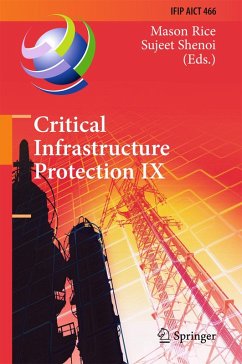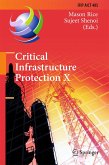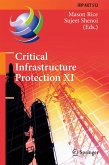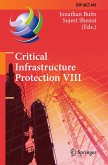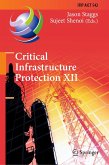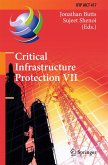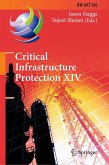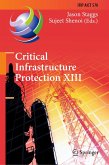Critical Infrastructure Protection describes original research results and innovative applications in the interdisciplinary field of critical infrastructure protection. Also, it highlights the importance of weaving science, technology and policy in crafting sophisticated, yet practical, solutions that will help secure information, computer and network assets in the various critical infrastructure sectors. Areas of coverage include: Themes and Issues, Control Systems Security, Cyber-Physical Systems Security, Infrastructure Security, Infrastructure Modeling and Simulation, Risk and Impact Assessment.
This book is the ninth volume in the annual series produced by the International Federation for Information Processing (IFIP) Working Group 11.10 on Critical Infrastructure Protection, an international community of scientists, engineers, practitioners and policy makers dedicated to advancing research, development and implementation efforts focused on infrastructure protection. The book contains a selection of nineteen edited papers from the Ninth Annual IFIP WG 11.10 International Conference on Critical Infrastructure Protection, held at SRI International, Arlington, Virginia, USA in the spring of 2015.
Critical Infrastructure Protection IX is an important resource for researchers, faculty members and graduate students, as well as for policy makers, practitioners and other individuals with interests in homeland security.
Mason Rice is an Assistant Professor of Computer Science at the Air Force Institute of Technology, Wright-Patterson Air Force Base, Ohio, USA.
Sujeet Shenoi is the F.P. Walter Professor of Computer Science and a Professor of Chemical Engineering at the University of Tulsa, Tulsa, Oklahoma, USA.
Dieser Download kann aus rechtlichen Gründen nur mit Rechnungsadresse in A, B, BG, CY, CZ, D, DK, EW, E, FIN, F, GR, HR, H, IRL, I, LT, L, LR, M, NL, PL, P, R, S, SLO, SK ausgeliefert werden.

